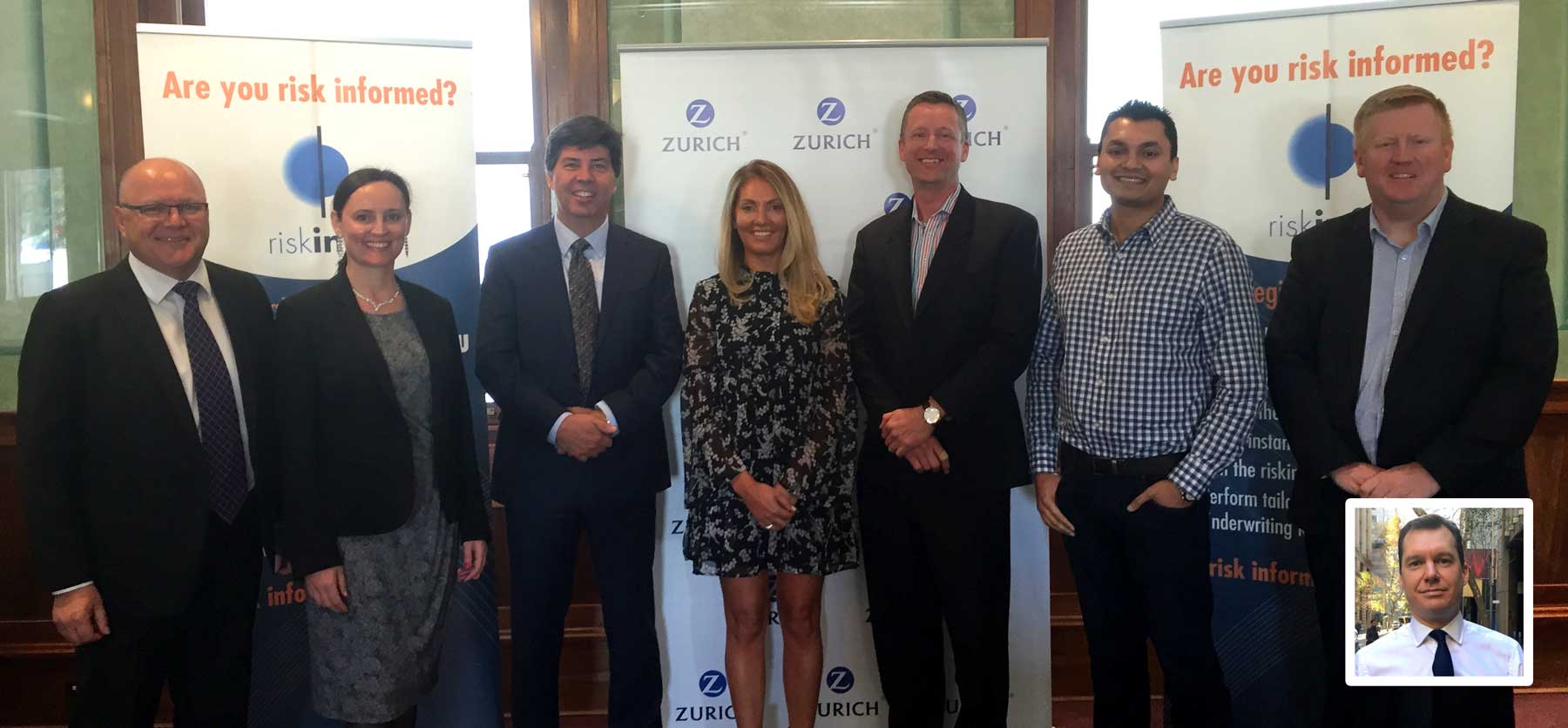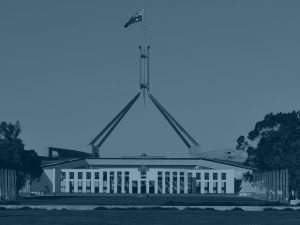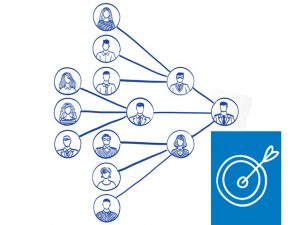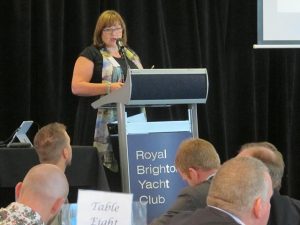Riskinfo joined forces with the AFA and Zurich to conduct an industry Round Table event in Canberra on the eve of the 2016 AFA National Adviser Conference.
While our talking points addressed critical issues of the day, such as adviser trust and the lack of consumer financial literacy, our discussion became one in which these and other topics revolved mostly around the 80% of Australians who don’t seek financial advice.

Panelists (L – R)
- Peter Sobels: Publisher, riskinfo
- Samantha Clarke: AFA General Manager Policy & Professionalism
- Marc Bineham: Incoming AFA President, Noall & Co
- Kristine Brooks: Head of Distribution – Retail Life & Investments, Zurich Australia
- Craig Banning: Principal, Navwealth
- Ravi Agarwal: Principal, MEDIQ Financial Services
- Jason Spits: Senior Journalist, riskinfo
- Tony Davison: General Manager, Senior Adviser, Henderson Maxwell (inset)
Table of contents (Click these links to move directly to those topics)
- The broader responsibility of the life insurance industry to the community it serves
- The four in five
- Understanding the consumer
- Specialisation
- Removing complexity
- Trust?
- Engagement
- Apathy
- Trust and public perception
- Consumer education and financial literacy
- Final Comments
The broader responsibility of the life insurance industry to the community it serves – Back to top
Panelists were initially asked to consider whether there should exist a greater social responsibility on the part of life companies and advisers towards the community which they serve.
Kristine Brooks, Zurich Australia’s Head of Distribution – Retail Life & Investments, got the ball rolling on this question, referring to any organisation, large or small, where “…we’re always at risk of focusing on our own businesses, whether that is manufacturing or advice. And being so focused in our efforts to make that a success, sometimes we don’t stop to look outwards to understand the environment in which we’re operating.”
Kristine believes consumer behaviour over recent times is helping to drive change: “…over many years life insurers have gone about their business delivering products in a way that consumers can access; and it’s a product or service that the manufacturer believes to be the best. But I think we’ve done very little to genuinely understand what solutions will best serve the consumer,” she said.
Kristine referred to recent research findings into what people really understand about life insurance and the products that they own. She said Zurich’s focus is more on ‘misinsurance’ than ‘underinsurance’ because they have found that quite often people hold products they don’t properly understand and which don’t fulfill their intended purpose . “They don’t understand the benefits that they would receive or when they can call on those products for assistance in their time of need.” Kris continued, “We hear stories from advisers all the time about clients who contact them to let them know something has happened, but who had no idea that this was an event on which they could make a policy claim.”
Kris also noted this lack of understanding extends to consumers confusing health and life cover, with Zurich research finding 10% of people surveyed thought their life insurance covered dental and optical expenses.
“The way the industry has [traditionally] gone about serving the consumer is by creating complexity in the guise of innovation. But if we flipped that on its head and understood what’s truly important to the consumer, simplify the products so that they truly met their needs, I believe the consumer would be more engaged and motivated to access the product – and for that reason would actively seek advice.
our responsibility is not only to our adviser members but also to the clients they serve
“Historically life insurance and financial advice has been one in which the client has delegated the authority to act on their behalf to the adviser. But now we seem to be moving into an era of more informed consent, in which the adviser seeks the client’s genuine understanding of the information being provided and their informed agreement with the recommendations made by the adviser.”
Kristine noted there may be a greater cost associated with accessing this deeper understanding of, and engagement with, consumers. But she believes the benefits of doing so would far outweigh the costs associated with that deeper engagement, which would lead to more tailored products and better ongoing engagement.
From the association perspective, the AFA’s General Manager, Policy & Professionalism, Samantha Clarke, told the panel that “…broader engagement with the consumer is a pivotal part of our role. As a professional association, our responsibility is not only to our adviser members but also to the clients they serve – and the broader community and consumers. That commitment is embedded in what our role is as an association,” she said.
“In the industry at the moment, issues such as trust and confidence are the driving force behind a lot of the reforms – and the rise in professionalism across the sector is impacting not only the associations but also the manufacturers – but in a positive way,” noted Samantha. “So, change always creates interesting discussions, but at the end of the day it’s all about working towards building trust and confidence in the sector.”
Samantha mentioned the consumer-facing ‘Your Best Interests’ campaign as an example of the AFA’s commitment in this area – about improving the understanding and literacy of consumers around the quality and value of advice: “Real stories; real consumers,” said Samantha.
The four in five – Back to top
Continuing on how she sees the AFA’s broader responsibilities, Samantha mentioned the four in five Australians who do not seek financial advice: “One of our responsibilities as an association is to encourage great advice for more Australians. The Your Best Interests campaign is one initiative; research papers is another avenue. If more Australians get access to advice then their overall wellbeing will improve.”
Speaking to the panel both as incoming AFA President and as an advice practice principal, Marc Bineham told his peers he has seen a seismic shift in the advice sector since the GFC and its fallout: “The consumer is looking at our industry in a negative way and we have to work hard to overcome that perception. So when we’re talking about delivering great advice, we’re not talking about great transactional advice. We’re moving away from a transactional adviser system to a values based advice system and that is the seismic change taking place.”
Marc told the panel he also sees evidence of this shift in the actions being taken by life companies, which he characterised as proactive rather than reactive initiatives. He cited new underwriting initiatives as an example: “…if the insured is taking proactive steps with regard to their health, then insurers and underwriters are recognising that – and so you can see that shift developing.”
Marc said he can also see a similar shift within the claims areas of insurers, where there is far more pro-active engagement in areas such as occupational therapy, physiotherapy assistance and finding other proactive solutions that will enable the claimant to return to work quicker.
Marc also painted a link between better consumer engagement by the industry and the economy. He pointed to the significant cost to taxpayers for the Government to fund areas including disability services, social services and pensions: “…the more advisers and insurers can ease the public burden the better will be all consumers and the economy,” he said.
I don’t think there’s a single professional industry in the world that’s got a grip as yet on the change to consumer power
Understanding the consumer – Back to top
Navwealth Principal, Craig Banning, pointed to the issues associated with growing consumer power: “I don’t think there’s a single professional industry in the world that’s got a grip as yet on the change to consumer power,” said Craig, as he asked his colleagues to consider all the industries that serve consumers and access big data, yet are still “…miles away from really understanding what the consumer wants.”
He says consumers are ahead of where professional industries are positioned “…and we need to catch up with them.” He says this is very different to recent history, where businesses developed products and said ‘this is what consumers need’. Now, “…the consumer is reversing that process in saying ‘That’s not what we need, but this is what we want.’” Craig sees this as a massive power shift. “And even the really big organisations don’t really understand,” he said.
Giving a slightly different perspective, Ravi Agarwal, founder of specialist Melbourne advice firm, MEDIQ, believes that in relation to the broader consumer shift there are many professions that are making inroads to becoming a lot more consumer-centric. He strongly agreed with Marc’s comments about different stakeholders in the industry (ie advisers and institutions) becoming more consumer-centric: “Traditionally there’s a corporation who delivers a product or service, governed by its shareholders, and that’s the essence of business (where the entity must deliver a return for its owners).” Ravi says technology advancements have enabled the rapid commoditisation of products and suggested to his peers that quality is now quite homogenous across high-end products. His question, then, which was effectively a challenge to his own advice business and those of his fellow panelists, was how to compete in that environment.
Ravi’s answer to his own question was that “You compete through brand and the value your brand stands for. And if you can align that brand with a consumer segment then you’re going to have good interaction [engagement] and great market penetration, and you’re going to be able to deliver something that’s really quite special.”
It’s every adviser’s job to come up with that proposition that resonates for the consumer in our relevant areas of specialisation
Specialisation – Back to top
Ravi agreed that this approach underpins his own business proposition, but added that he believes this approach underlines every business proposition in the world. “How else are you to compete?” asked Ravi, in today’s modern world, when consumers are now so highly informed and have access to so much information at the flick of a switch. It’s every adviser’s job to come up with that proposition that resonates for the consumer in our relevant areas of specialisation – to create that interaction and create motion. And if we create motion we create value,” he said.
Ravi told his peers specialisation doesn’t necessarily have to relate to a particular industry group. Rather, “I think the best way to specialise is on value.” He referenced the current wave of social change, positioning it as a new stage, as was the industrial revolution, the environmental revolution “…and now there’s this huge societal revolution where we want social change and we want to do good. It’s no longer ok just to make money. You’ve got to make money and share,” said Ravi, whose comment also circled back to an earlier observation by Kristine in relation to the broader responsibilities of businesses within the market or environment in which they operate.
“You can see the change that’s occurring in even the most highly commoditised products such as water,” continued Ravi, “…where the label of ‘share’ will deliver value.” He says the consumer attitude is that they’re going to buy the product anyway (eg water). “So they think ‘Why don’t I buy the brand that’s going to help do some good?’” In doing so, Ravi says the consumer is making a statement about their own values.
Kristine reinforced this by pointing out that JK Rowling was the first billionaire to drop out of the Forbes Rich List by virtue of the volume of charitable donations she made. Ravi also referred to the Bill and Melinda Gates Foundation as a similar example.
Ravi saw this as an emerging trend, telling the panel he believes people are realising more and more that money of itself was not the solution to their problems.
Tony Davison, senior financial adviser and GM at 2016 AFA Practice of the Year, Henderson Maxwell, turned the conversation back to focusing on the ‘four in five’ in terms of how the industry should be navigating its future. Tony said Henderson Maxwell Principal, Sam Henderson and their colleagues focus on the 80% who do not seek financial advice. “We think about the four in five in our business,” he said. “One of the key things for us is not so much the power of the consumer, but we really think information doesn’t equal understanding. And that’s a big issue,” said Tony.
“Whether it’s people seeking financial advice or others trying to self-diagnose using Dr Google, there is really an opportunity for our industry to continue to try to convince the four in five who don’t seek financial advice that not only is there value in it, but implicitly that it’s very important that they seek advice. The biggest issue, though is that the four in five, and in fact many of the other one in five who do seek advice, are cynical about the value of the advice process.
think the complexity in our industry has led to a significant amount of disengagement by consumers
Removing complexity – Back to top
“So for us, what it’s really all about is ensuring people understand that information – and being able to access information doesn’t equal understanding. And at the second level is helping them really understand and see some value in essentially what is a very high involvement decision making process, which is what giving financial advice involves. Those are the things we strive to do, and we try to do it in a friendly and efficient manner,” he said.
Tony continued, “We think the complexity in our industry has led to a significant amount of disengagement by consumers. Complexity is partly driven by compliance, which is absolutely necessary. But it does drive massive amounts of complexity. It also drives a very ‘island-like’ response from participants in the industry as well, where they’re protecting their own nest rather than looking at the process from a consumer stand point.
“So if we stand back, what we see is an opportunity to try and engage with people – to cut through the details to get to a point at which they recognise that they need advice, and then get to a further point where they feel that they can trust an adviser and to actually go and seek that advice.”
Trust? – Back to top
In the context of the four in five who don’t seek financial advice, a question was put to the panel: Does the four in five trust you (advisers and industry)? If they don’t, what can be done about it?
Craig: “I think the four in five are so confused about what we do, so the trust issue doesn’t come into it yet as they really don’t know what an adviser does. (Craig’s comment drew broad agreement from the rest of the panel.)
“When I have a brief conversation with a public group, it’s always a quick tip. But that’s so removed from what a good adviser actually does. There’s such a gap between what the four in five know what we do and what we actually do. And we don’t seem to be doing a great collective job to bring that together. It’s a slow, practice by practice, client by client conversation,” concluded Craig.
Craig said he believes the average consumer thinks they don’t need financial advice: “I’m always surprised about how many clients come to us as a referral and they actually say, ‘I don’t know why I’m here.’ So they’re actually very negative even before we start a dialogue. But by the end of the meeting I ask them what they think now and they say they hadn’t really understood what advisers do.”
Another issue Craig experiences is that “…a lot of people don’t seek advice because they think they need to be wealthy. One client recently said they had $5 million but didn’t think they were wealthy enough to get financial advice!”
Tony agreed with Craig and said the trust issue comes down to making sure the industry is first communicating the framework that it’s working in and some of that framework has yet to be implemented, let alone finalised. “I also agree that in the broader community, they don’t know what we do. I think that most people in the community are skeptical about most other people until they understand them. If you think about how our industry works, most clients come on the back of referrals because others have trusted us. And it’s those people who ask in that initial appointment ‘Why am I here,’ and after an hour or so the light finally comes on.”
the simple fact is that most consumers are disengaged about issues like insurance and super until they really need it
Engagement – Back to top
Searching for an answer as to how to get the message to reach the four in five, Tony said “It’s really ‘hand-to-hand combat’ in a lot of ways because it’s not until you can speak with those four in five that you’re really going to convince them about the merits and value if advice.
“A huge amount of effort is put in by many people in the industry to communicating better and to engaging audiences, but the simple fact is that most consumers are disengaged about issues like insurance and super until they really need it.
“What we’re already doing goes a fair way towards gaining that trust over time. I don’t think we can do a huge amount more (than taking one client at a time). Over the longer term, a lot of the answer lies in gradually educating the general public about the merits of advice and bringing them on the journey and making sure they’re aware of the tools that are available to them. But again we need to make sure that we help the client cut through the complexity of the process so they can understand its value – that it’s not just a homogenous process but is a very individualistic approach.”
Ravi compared institutional trust by consumers in the US compared to the rest of the world. “There is this belief in the US that corporations will do the right thing by you, but especially in Australia we’re so cynical about it.” Ravi says that, even despite the GFC fallout and Enron-style debacles, there is still an underlying trust by the American consumer in their institutions that doesn’t exist in the typically cynical Australian psyche. Partly, according to Ravi, this is due to how the media portrays corporates in Australia.
Ravi agrees that what needs to be addressed (changed) is that the consumer doesn’t understand what financial advice means, or its value. “The only way to change that is through education and professional standards,” said Ravi, who also agreed this was a very slow process that will take “…maybe even a generation.” He asked his peers how many of their parents had financial advisers, and suggested the children of those who did are much more likely to seek their own financial adviser today.
Considering the role of the adviser association in working to engender trust in the community, Samantha reflected that in taking one step back this was a ‘higher-purpose’, not just of the industry associations but this responsibility extended to the rest of the sector, including product manufacturers, licensees and advisers.
Samantha referenced the work being conducted by the AFA in association with the Beddoes Institute, where they are studying consumer attitudes via a research initiative called the Consumer Choice Benchmark Study. The focus of the study, said Samantha, is understanding from the consumer perspective who it is they rate and who is doing well in their eyes. She sees this as an important initiative to raise trust and confidence in product providers.
She added that engagement by all insurers in this research will be a good measure of the effectiveness of this initiative, and from which stems a raising of the bar for service standards and customer engagement across the sector. “And we’ll find out who it is that is raising that bar,” added Samantha.
Apathy – Back to top
Marc Bineham agreed that trust isn’t really the issue. For Marc, it’s the apathetic four in five who need to be reached, because research has consistently shown that the engaged one in five hold solid levels of trust in their adviser and in advice.
In Marc’s advice business (Noall & Co), he told the panel that the 80/20 rule always applies, where his firm may run a corporate super session for employees, where only one in five will ever take up the opportunity for personal advice, leaving four in five who don’t care or who are not sufficiently motivated. Put another way, according to Marc, the four in five lead complicated lives and there never seems to be time to seek help and get their affairs sorted out. “They just haven’t got time (or don’t make it). They don’t appreciate that the adviser can say ‘We can take that away from you’,” – effectively outsourcing that important but time consuming part of their lives.
“So, as an association, we have to find a way to send messages that will help to overcome that apathy. But as advisers, we can only do that one-on-one.”
Marc says there are so many great advice stories out there. “That’s never been the problem. But as an industry, we’ve never been good at marketing that.” He mentioned the industry funds successful marketing campaign: “But with the life insurance sector, each institution does its own thing,” observed Marc, who was effectively noting a relative lack of unity of message from the life insurance industry compared with industry super funds.
Samantha added that raising professional standards will also enhance the trust factor, but Marc gave an example where trust was not necessarily the issue. He told the panel of a careers night at a local school where one of the top advisers in the country attracted only five students to her session, compared with what appeared to be a reasonably non-descript accountant, who had around 60 students attend his presentation. “That’s our challenge,” reflected Marc.
at times I believe we ask for that trust before we’ve earned it
Kristine seeing things through a different lens in terms of the journey a consumer takes on their path to receiving financial advice: “The people who need our advice the most are financially challenged and therefore have a lot of uncertainty and fear associated with their current circumstances.”
Kristine said everyone wants to feel safe and financial security is a big part of that. She said when a person has that much fear and is brave enough to seek advice this can sometimes be a confronting journey, especially when they may need to share their sometimes very personal circumstances:
“I think that sometimes we expect trust far too soon in the process,” said Kristine. “Trust needs to be earned and we have to challenge ourselves because at times I believe we ask for that trust before we’ve earned it – we ask for it a bit too soon.”
Tony strongly agreed. He thinks Kristine’s comments were ‘spot on’ regarding the need to earn the trust of the consumer or client prospect. He says it’s not something that’s achieved by ad campaigns, but is something that is a gradual accretion over time. “It takes ages to get people to really trust you and to think that they know you,” was how Tony put it. This comment was met with broad general agreement by the panel.
Craig reminded his peers of so many powerful (but sometimes, sad) stories about the good the industry does at claim time, but he lamented that “…no-one seems to be prepared to talk about it to the public.” Samantha raised the Your Best Interests campaign as an example, though, of what can be done.
Trust and public perception – Back to top
On the topic of these powerful claims stories, Marc said “…the number one question clients ask us is ‘Are you confident this policy claim would be paid if we go with this insurer?’”. Marc said he has to point out each time that it’s only the fraudulent and non-disclosure claims that get declined. “We have to tell them that every legitimate claim gets paid. In thirty years I’ve only ever had one client who wasn’t paid and that was because of fraud.”
The financial advice process needs to be a relationship, where the financial adviser can take you on the journey over time
Consumer education and financial literacy – Back to top
Senior Riskinfo journalist, Jason Spits, challenged the panel to apportion responsibility as to whose job it is to generate greater financial literacy amongst the public. He raised the Zurich survey.
Tony said advisers first need to engage with the four out of five. “It starts with a question and you follow on from that with the fact that they need advice – it’s so complex that it can’t be solved all in one go. That’s the start of the process,” said Tony. “You need to engage the four out of five with one piece of the puzzle first of all and that’s what we endeavour to do. That’s what advisers need to be doing. They need to be out there engaging the general public and talking to them in general terms and try to get them to embark on that advice journey because they’re not going to do it any other way.”
Ravi cautioned care needs to be taken to ensure the consumer doesn’t think that financial advice is a transactional process, where a consumer can make a call with a particular query and get a particular response and think that is the end of the journey. “The financial advice process needs to be a relationship, where the financial adviser can take you on the journey over time – over a twenty or thirty year path where there will be different aspects of your financial life that will require advice. And that is what we need to be promoting that much more.”
Ravi noted “Value is not the word I would use in terms of distilling knowledge. The key is numeracy,” he said. “Part of the reason the consumer doesn’t understand the complexity of the process is because the level of numeracy across the entire nation is not what it could be. We need people to understand the level of complexity in their own mind. You’re never going to see value [in financial advice] unless you have decent numeracy – basic applied numeracy – how you understand the core numerical values you need as you go through life.”
Craig: “We don’t give enough compelling reasons why people need financial advice. This issue needs to be addressed right back at the school years. I agree with Ravi. I quiz my teenage children and there’s nothing that happens at school about financial literacy. There’s nothing about setting financial goals and life styles. Advice is not around a Q&A style of process,” continued Craig. “People need help with where they’re going in their life’s journey. Twenty-five years ago when I started as an adviser it really was a product-driven process. Now, what we do is just so removed from that. Now, it’s all about lifestyle and family and issues to work through. Today, I have men crying in my meeting rooms because they feel they are not financially successful. That didn’t happen 20-25 years ago. They didn’t cry then. The one in five know this, but the four in five don’t and they need more compelling reasons to seek out financial advice.”
Marc was conscious of wearing two hats with this response to this question of responsibility for consumer financial literacy. He referred to a survey that found most employers thought employees wanted services such as childcare at work, but the survey found what they really wanted and expected from their employer was some form of financial education.
You can Google all the information you want, but it doesn’t solve your financial stress
“So, financial wellness and financial literacy is starting to come into the workplace,” said Marc. He also related financial stress was the number one issue that led to marriage break-ups and was also the number one issue for twenty-something employees when commencing their working careers.
Marc effectively agreed with earlier comments that information did not lead to understanding: “You can Google all the information you want, but it doesn’t solve your financial stress.”
“From and AFA point of view, we’ve definitely seen through advisers past and present the emergence of genuine informed consent, where clients are encouraged to take notes during the meeting in order to help them navigate their way through the sometimes complex world of financial advice. “ Marc referenced the post GFC environment in which advisers could not rely on double digit returns to add value.
Kristine raised the issue of ‘industry speak’ as an additional impediment to consumer financial understanding. She said that in addition to the average consumer not being exposed to financial literacy or education at school or in the workplace, they also have to deal with significant levels of jargon that exist within the sector. Not consumer-friendly. To that end, Kristine told the panel Zurich was seeking to change its consumer information and client statements into plain English.
Jason asked the panel whether the one in five consumers seeking financial advice is as good as it’s going to get. Tony said he believes the industry can reach 50%. “There’s every opportunity and the industry should be focused on achieving this target. I believe there is a huge amount of latency out there, with unanswered questions. And again, questions turn into conversations and conversations turn into life-long relationships. That’s the way good advisers look at it.”
Marc referred to the BHAAG (Big Hairy and Audacious Goals) concept, in which the industry should strive for 100% of consumers seeking financial advice: “Of course we should be trying to break that 20% glass ceiling,” he said. “I do think we should keep doing what we’re doing in moving from a transactional to values based advice process. But to get to anywhere near 100% engagement we need Government support.”
Samantha added there also needs to be a greater focus on delivering advice to women, who are underrepresented as advice clients. She sees this as a key opportunity for the whole advice sector.
the barriers to people being able to access advice are lowering
Final Comments – Back to top
Each member of this panel is a high-achieving thought leader in the financial services sector. In a 90-minute conversation that that could have lasted for many hours, final comments and observations from the panel included:
Craig Banning: “I think we’re all becoming better at collaborating. I think associations are better today than they have never been in my twenty-five years in the industry.” And in what we’ve come to expect from the top advisers in the industry, Craig added, “It’s a great time to be an adviser now, versus any other time in history. I see us all wanting to go down the right path.”
Ravi Agarwal: (Again, typical of the top echelon of successful advisers): “I see the future as incredibly bright. Looking at how we reach the four out of five, we really need to be more pragmatic and look at what we call advice. What is the definition of ‘advice’?. “Is it someone who calls an industry funds hotline? To be honest, that is advice. The member has taken a step to try to obtain some initial information, similar to someone visiting ASICs MoneySmart website. That is also seeking advice and I’d like to see that definition broadened. And with the advancements in technology, the barriers to people being able to access advice are lowering, which is fantastic, as it will improve numeracy and financial literacy and will give the consumer the ability to make much better decisions.”
Tony Davison: “As a professional community there’s a fantastic membership base who is very engaged for all the right reasons. And while there’s currently a diversity of opinion, we all want a better outcome for the industry, but especially for the consumer.”
Marc Bineham: “There will always be noise in our industry. But as we address each of the challenges in our industry, we can’t forget all the great stories that our members are involved in every day – all the good news stories that we need to get out there and for the public to learn about – and from the AFA’s perspective, showcasing these three advisers (Ravi, Craig and Tony) which informs our members about the quality and the great stories these guys provide to their clients.”
is transactional advice necessarily wrong, if that’s what a consumer needs?
Samantha Clarke: “Based on my twenty-five years in the industry, I think that we’re emerging into a positive space. The professionalism of advisers has never been higher, nor has their commitment to client-centricity. There’s also the commitment being shown by product manufacturers to develop products that extend beyond transaction outcomes to health and wellbeing outcomes. This is really exciting, and so it’s an exciting time to be in this industry.”
Kristine Brooks: “I’d like to leave the panel with a challenge…We’ve had a lot of conversation today about moving from transactional advice to more relationship and values-based advice engagement with the customer. To get to the four in five, I think we do need to remove barriers and potentially we need to think more about how the customer wants to engage in the advice process (picking up on Ravi’s final comments about what constitutes advice). For example, is transactional advice necessarily wrong, if that’s what a consumer needs? And if someone has a wonderful experience at the point at which they engage with you (even if it’s a transactional experience), I bet they’ll come back at the right time. So I think we need to potentially think more flexibly and to be more adaptive around how we provide advice.”












